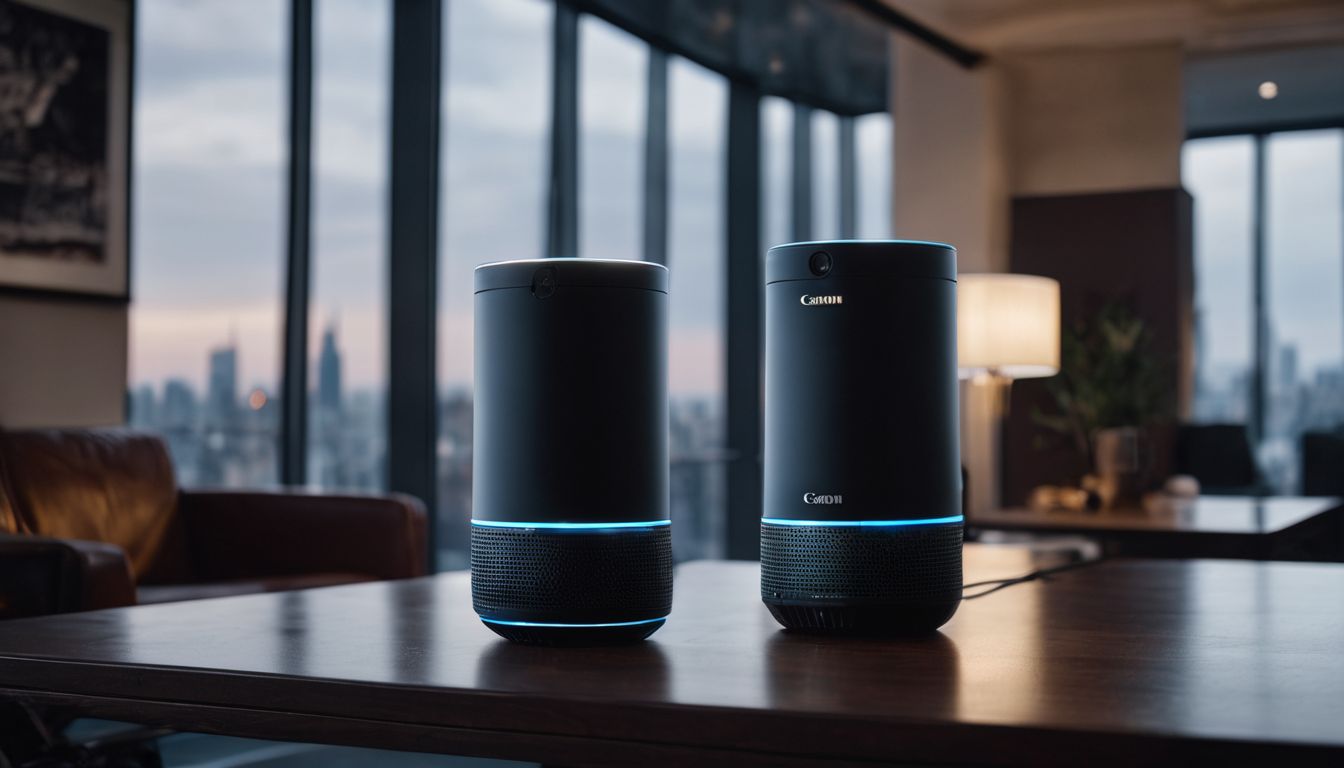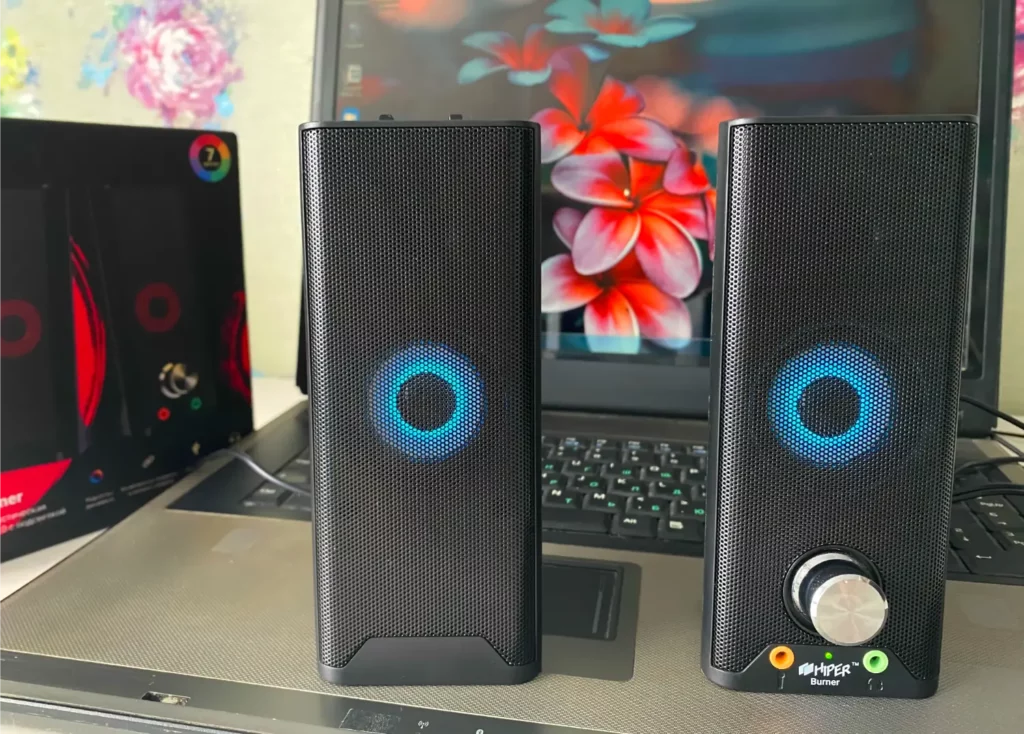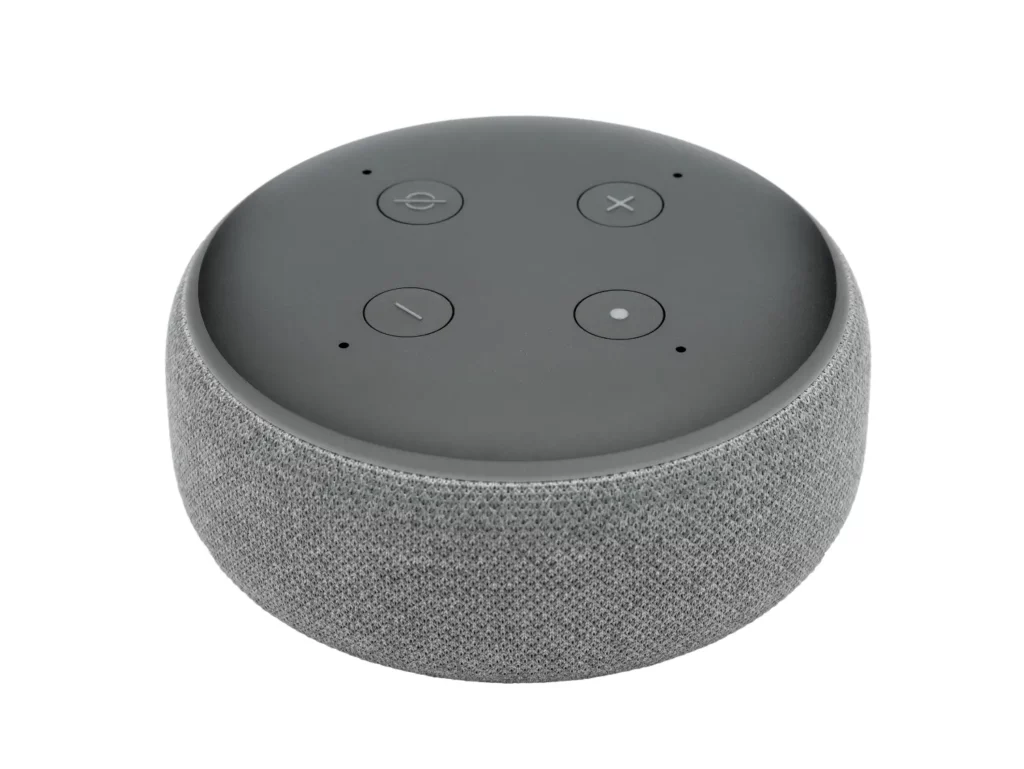
Voice assistants are everywhere, in phones, homes and even cars. Yet, 41% of users worry about privacy and who might be listening in. Our blog explores this digital dilemma and offers insights into balancing convenience with confidentiality.
Keep your voice heard – safely.
Key Takeaways
- A significant percentage of voice assistant users, 41%, are concerned about privacy issues such as trust and passive listening. Users particularly worry about who might have access to their data and how it’s being used.
- Younger consumers, especially those with children, are leading the adoption of voice assistant technology. This demographic often uses these tools for multitasking and family entertainment but also highlights the need for clear information regarding privacy.
- Basic tasks like setting alarms or reminders remain the primary use for voice assistants despite growing capabilities. Simplicity in design and functionality is key for user satisfaction, while transparency on data usage can help mitigate privacy concerns.
- Shoppers’ decisions on smart home purchases are influenced by their trust in voice assistant technology. Companies need to ensure robust privacy settings to ease consumer fear over adverts control and personal data security.
- Educating users on the potential risks and ethical implications associated with voice assistants is essential. Companies should focus on creating a trusting relationship by addressing privacy issues through clearly defined boundaries and transparent practices concerning user information collection.
General Awareness and Adoption of Voice Technology
Younger consumers are driving the adoption of voice technology, with mobile usage of voice assistants becoming increasingly popular. However, basic tasks such as setting alarms and reminders remain the norm for most users.
Younger Consumers Driving Adoption
Young consumers are embracing voice assistant technology at a swift pace. Their familiarity with digital platforms and preference for quick, efficient interactions make them prime users of these innovative tools.
Voice commands easily integrate into their multitask-driven lifestyles, allowing them to search the web, play music or check the weather without interrupting their current activity.
Households with children also contribute significantly to the surge in voice assistant usage. Parents often find that smart speakers can offer educational content while entertaining their kids, making them an attractive addition to family routines.
This adoption across younger demographics signals a shift towards more voice-activated environments as future technologies evolve and continue to captivate this tech-savvy generation.
Mobile Usage of Voice Assistants

Mobile usage of voice assistants has seen a significant rise, with younger consumers and households with children driving the adoption. Research from Accenture UK reveals that 40% of voice assistant users have concerns about their data privacy and who may be listening in.
This concern is especially relevant as these devices have the capability to collect personal information, raising ethical questions around data protection and privacy. Voice-controlled digital assistants are increasingly integrated into mobile devices, making it crucial for users to understand how their personal information is being used and protected.
The rise in mobile usage of voice assistants brings potential benefits but also raises legitimate concerns about data security and trust. As such technology becomes more integrated into daily life, addressing these concerns will be vital for fostering greater consumer confidence in voice assistant technology.
Basic Tasks Remain the Norm
Voice assistant adoption is being driven by younger consumers, households with children, and office workers. Usage statistics show that basic tasks such as setting alarms, checking the weather, and playing music remain the most common activities for voice technology users.
Concerns about privacy and data collection persist among internet users as 41% of voice assistant users have expressed worries about trust, privacy, and passive listening. It’s important for parents to understand that while voice assistants offer convenience in performing everyday tasks, there are ongoing concerns regarding the protection of personal information when using these devices.
Privacy fears related to always-on voice features and potential security risks have led to a growing concern about ethics in the design of voice assistant technology. Office workers should be aware of these issues as new application areas for digital assistants continue to emerge.
Consumer Concerns and Trust in Voice Assistants
Shoppers face trust barriers when it comes to using voice assistants, with concerns over control of adverts and privacy risks. It’s important to understand and address these worries to foster trust in this technology.
Trust Barriers for Shoppers
Voice assistant technology has created trust barriers for shoppers, with 41% expressing concerns about privacy and passive listening. Research from Accenture UK reveals that 40% of voice assistant users worry about who is listening and how their data is used, highlighting the impact of privacy fears on consumer behaviour.
Critics fear that voice assistants collect more revealing data than users realise, raising ethical concerns around how companies profit from user utterances. As a result, there is a growing concern about the role of ethics in voice assistant design, particularly regarding privacy and data collection.
Moreover, households with children are driving the adoption of voice assistants, leading to increased awareness among parents. This makes it pivotal for digital assistant designers to mitigate privacy concerns through understanding boundaries and prioritising education.
Control Over Adverts
Users are wary of voice assistants due to concerns over adverts and privacy. Research indicates that 41% of voice assistant users have concerns about trust, privacy, and passive listening.
This fear is fueled by the potential for companies to profit off user utterances made in private settings. Accenture UK’s study reveals that 40 percent of voice assistant users worry about “who is listening” and how their data is used, raising red flags regarding control over adverts and the protection of personal information.
Moving on to how consumers are influenced by these issues when making smart home purchases.
Privacy Risks

Voice assistant technology has raised significant concerns about privacy and data collection. A recent study revealed that 41% of users have worries about trust, privacy, and passive listening by voice assistants.
Critics fear that these devices may be collecting more personal information than users realise, potentially allowing companies to profit from the data. Additionally, research shows that 40% of users are concerned about who is listening and how their data is being used.
As voice-controlled digital assistants continue to gain popularity, it’s vital for consumers to understand the potential risks associated with these devices. With growing concerns about privacy and data security, it’s essential for individuals to stay informed about the ethical implications of using voice assistants in their homes and workplaces.
Influence of Voice Assistants on Smart Home Purchases
Voice assistants significantly impact smart home purchases. Younger consumers, households with children, and tech-savvy individuals are driving the adoption of voice assistant technology.
Concerns about privacy and data collection have influenced shoppers’ decisions when purchasing smart home devices that incorporate voice assistants. Research shows that 41% of voice assistant users express concerns about trust, privacy, and passive listening.
With the potential for voice-assisted technology to collect and share personal information, consumers weigh these considerations when integrating smart home devices into their living spaces.
Companies profit from the data collected by voice-assisted products which has raised ethical concerns among consumers regarding the use of their personal information. Furthermore, as new application areas for voice-controlled digital assistants emerge and their overall end user adoption increases, it is crucial for individuals to remain vigilant on how their data is utilised within these technologies.
Overall Satisfaction and Privacy Concerns
Consumers report high satisfaction with voice assistants, but concerns about privacy remain a significant barrier to widespread adoption. Understanding and addressing these concerns is crucial for the continued success of voice technology.
High Satisfaction but Concerns About Privacy
Voice assistant users report high levels of satisfaction with the technology, yet concerns about privacy persist. A study found that 41% of voice assistant users express unease about trust, privacy, and passive listening.
This aligns with research suggesting that 40% of voice assistant users worry about who is listening and how their data is being utilised. With critics fearing potential exploitation of user data for profit, it’s crucial to address these valid apprehensions to ensure a trusting relationship between consumers and voice technology.
Users’ satisfaction with voice assistants is juxtaposed against genuine reservations related to the protection of personal data and privacy concerns. As adoption rates continue to rise among younger demographics and households with children, there’s a pressing need to prioritise addressing these worries through transparency and robust measures for safeguarding user information.
Definition of “Voice Assistants” for Respondents
Voice assistants are digital technology that users can interact with using voice commands. They perform tasks or services for an individual based on verbal instructions, and they commonly function through virtual assistant devices or applications.
Examples of popular voice assistants include Amazon’s Alexa, Apple’s Siri, Google Assistant and Microsoft’s Cortana. These digital aids have the ability to answer questions, manage tasks, set reminders, provide real-time information like weather updates and news, control smart home devices like thermostats and lights, play music or podcasts, make shopping lists or place online orders.
Voice assistants also have the capability to process natural language requests from users and respond accordingly. However convenient they may seem in performing various functions via voice interaction, there has been increasing concern around privacy risks associated with these devices mainly due to their always-on listening feature which could potentially lead to personal data being collected without consent.
How to Foster Trust and Prepare for Success with Voice Assistants
Optimising for voice success is crucial, as well as prioritising education and simplicity in the interaction with voice assistants. Mitigating privacy concerns through understanding boundaries and being patient for wider adoption is also key to fostering trust and preparing for success with voice assistants.
Optimise for Voice Success

To optimise for voice success, ensure that your content is clear and concise, avoiding unnecessary complexity. Prioritising education and simplicity can help users feel more comfortable with the technology.
Mitigate privacy concerns by clearly defining boundaries for data collection and usage, addressing trust barriers, and being transparent about how data is used. It’s important to note that 41% of voice assistant users have concerns about trust, privacy, and passive listening; therefore, taking steps to address these issues will be crucial in fostering trust among users.
Voice-controlled digital assistants have raised ethical concerns around privacy and data collection. Companies must recognise the importance of protecting user privacy while developing voice technology.
Prioritise Education and Simplicity
To foster trust and prepare for success with voice assistants, educating users about privacy implications and simplicity in usage is crucial. With 41% of voice assistant users expressing concerns about privacy, it’s important to prioritise education on how data is collected and used.
This can be achieved by clearly outlining the boundaries of data collection and ensuring that users understand their control over the device’s features. Simplicity in design and functionality will also help alleviate concerns, making it easier for users to manage privacy settings.
By addressing these aspects, a sense of transparency and understanding can be cultivated, paving the way for wider adoption.
Mitigate Privacy Concerns Through Understanding Boundaries
Optimising voice assistants for privacy can mitigate user concerns. Understanding the boundaries of data collection and passive listening is crucial. Users should be aware that these devices are always “listening” to some degree, but clear regulations and consent mechanisms can help protect personal information.
Being mindful of how voice assistants operate is essential for safeguarding digital privacy. Companies must prioritise transparency in their privacy policies and educate users about what data is being collected and how it will be used.
As technology evolves, maintaining respect for user boundaries will become increasingly important.
Fostering trust through better understanding of boundaries enables a more responsible use of voice assistant technology, ensuring protection against potential privacy breaches as we move forward with this innovative trend.
Be Patient for Wider Adoption

Voice assistant technology is rapidly evolving, but wider adoption may require patience. Younger consumers and households with children are driving the adoption of voice-controlled digital assistants, indicating a potential shift in consumer behaviour.
However, concerns about trust, privacy, and data collection by voice assistants persist among users. As companies continue to address these issues and educate consumers about the benefits and boundaries of voice technology, wider adoption may gradually become a reality.
The potential for cyber espionage and ethical concerns surrounding privacy and data collection continue to influence the pace of wider adoption for voice assistant technology. With 41% of users expressing concerns about trust and passive listening by voice assistants, building consumer confidence through transparent policies concerning privacy protection will be crucial.
In conclusion, privacy concerns persist among voice assistant users, with 41% expressing worries about trust and passive listening. Accenture UK research indicates that 40% of users are apprehensive about data usage and who is listening.
Additionally, younger consumers are driving adoption, highlighting the need for ongoing education on privacy boundaries. With voice-controlled assistants raising ethical issues, proactive measures must be taken to address these concerns through technology optimisation and user education.
FAQs
What are privacy concerns with digital assistants?
Privacy concerns with digital assistants often include worries about passive listening and the implications of always-on voice features that may affect consumer privacy.
How many people are using voice assistants today?
Usage statistics show a significant number of consumers adopting voice technology, with voice assistant adoption rates increasing every year.
Do users trust their voice-based devices?
Many users have trust issues with voice technology due to concerns about how these devices handle and store conversations.
Can using a digital assistant change the way we behave?
Yes, changing consumer behavior with voice technology is observed as more people rely on these assistants for daily tasks influencing their privacy perceptions.
Are there any measures to protect my privacy while using a voice assistant?
Voice-based devices come with privacy policies aimed at addressing trust issues by explaining what data is collected and how it’s used, although it’s crucial for users to review and understand these policies.
